Home office essentials: Work from home more comfortably
These 14 home office essentials are designed to make the time you spend at your desk that little bit less painful.

Daily design news, reviews, how-tos and more, as picked by the editors.
You are now subscribed
Your newsletter sign-up was successful
Want to add more newsletters?

Five times a week
CreativeBloq
Your daily dose of creative inspiration: unmissable art, design and tech news, reviews, expert commentary and buying advice.

Once a week
By Design
The design newsletter from Creative Bloq, bringing you the latest news and inspiration from the worlds of graphic design, branding, typography and more.

Once a week
State of the Art
Our digital art newsletter is your go-to source for the latest news, trends, and inspiration from the worlds of art, illustration, 3D modelling, game design, animation, and beyond.

Seasonal (around events)
Brand Impact Awards
Make an impression. Sign up to learn more about this prestigious award scheme, which celebrates the best of branding.
Equipping yourself with home office essentials has probably never been so important. With most of the world's office workers working from home right now, it's crucial to get your office setup spot on. This means not only making your desk area as inspiring as possible (after all, you're likely spending a lot of time there), but also properly comfortable – balancing on a dining room chair at the kitchen table just won't cut it long term.
It helps to have the right kind of chair, but also the perfect desk, office storage and office drawers, too, to ensure your setup leaves your body and mind in optimum health. And that's not to mention the best desk accessories designed to tweak your positioning, such as monitor arms and stands. In this guide, we've selected some of our favourite things, which will make working from home a lot easier. Remember to carry out these desk exercises throughout the day, and check out our guide to the best office plants for a greener space, plus the best smart home devices for products that could improve productivity in the house.
01. Standing desk (or the perfect desk for you)
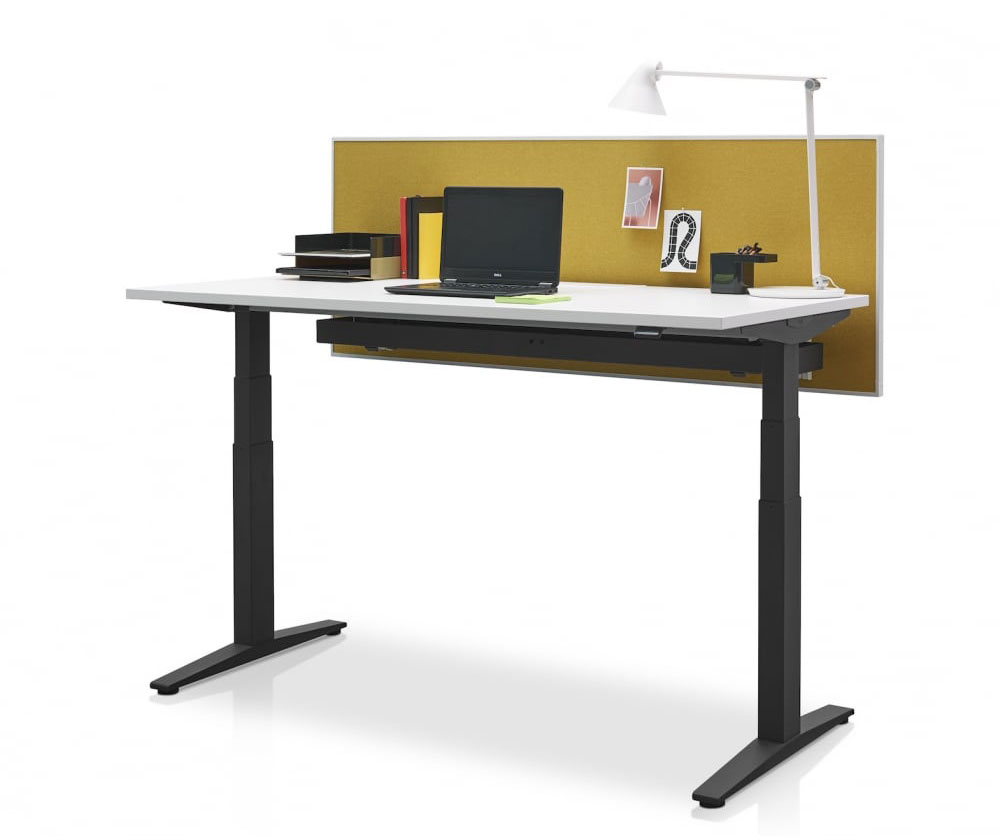
If you're spending a lot of time at your desk, it might be time to invest in a standing desk. It's no secret that sitting down for long periods of time can have significant negative effects on your wellbeing, and although standing desks are relatively pricey, your health is probably one of those things that are worth shelling out for. This Herman Miller Ratio Sit-Stand Desk is particularly nice-looking.
Don't fancy standing up all day? Our guide to the best desks has options for whichever position you'd rather be in. And if you have the space, you can expand your workstation with any of the best L-shaped computer desks. And if you need something kind to your back, see our pick of the best office chairs for back pain.
02. The right chair
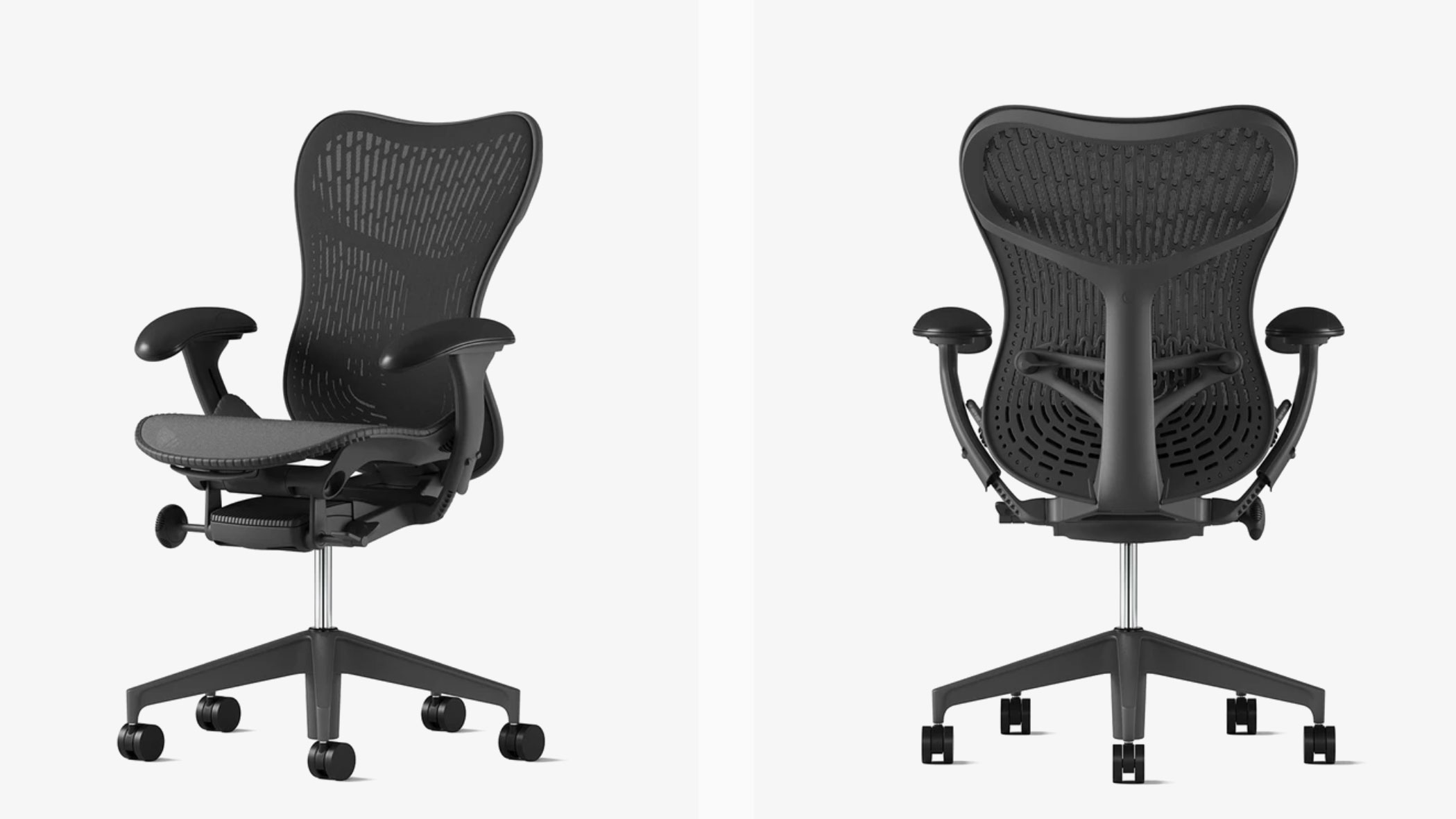
No amount of cushions or position adjustments will help you feel comfortable if you don't have the right chair in the first place. The one you choose will depend on your personal preferences, but if you want to go for one the first chairs made with a health-conscious design (and you'd rather your chair and desk brand match), that's the HermanMiller Mirra2. Deemed 'as responsive as your shadow', it adapts to your form when you sit down – you can't ask for more than that.
For a range of chair options (at all price points), head over to our pick of the very best office chairs around right now, or the best office chairs for back pain if you're concerned about your posture.
03. Store your stuff right
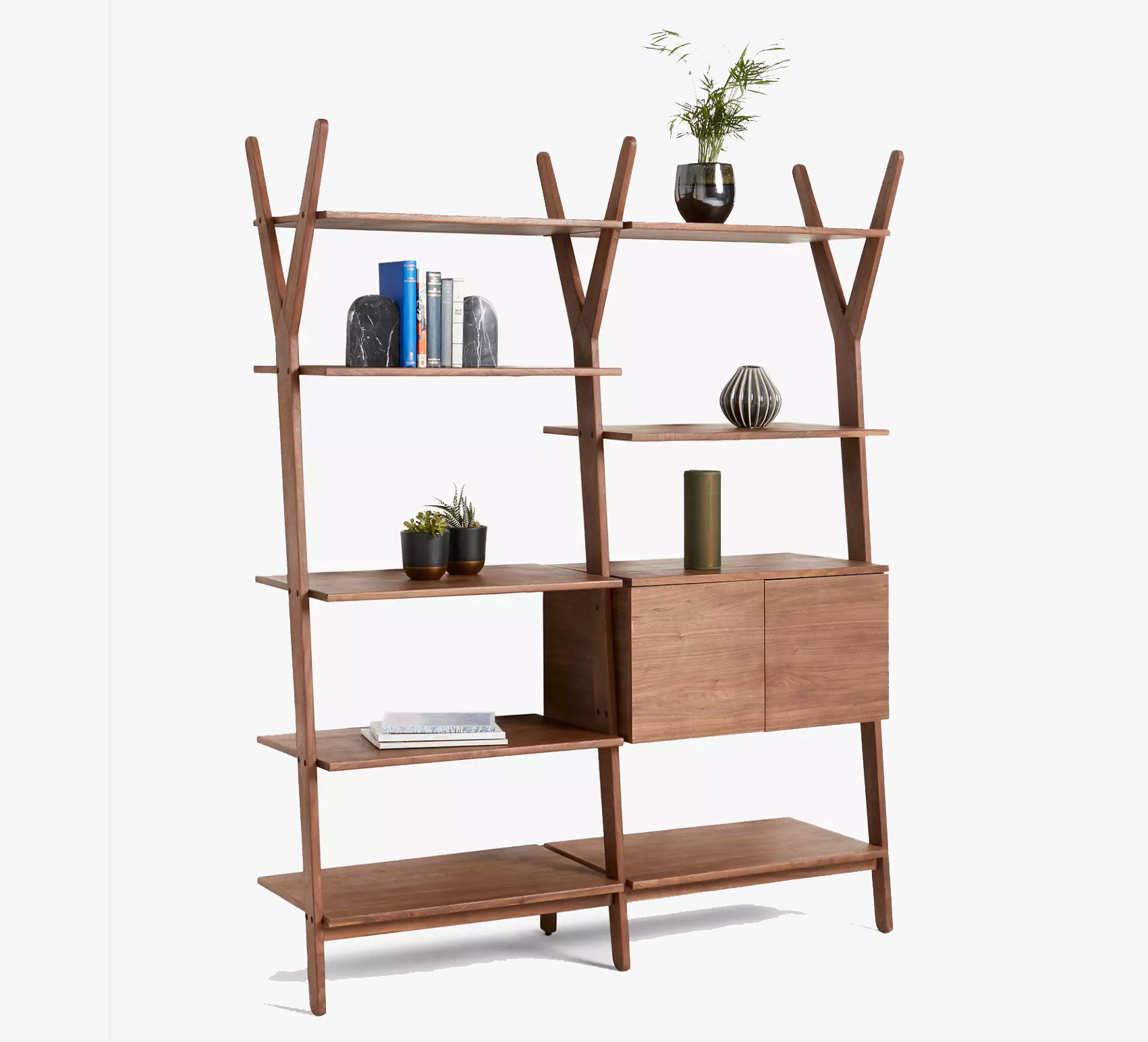
However much stuff you have dotted around your office, it's going to be better for your outlook if it's neatly tucked away, properly ordered and easy to access. Not only is it difficult to concentrate with piles of things everywhere, the thought of embarking on a task is a lot harder when you're not totally sure where the necessary materials actually are.
Daily design news, reviews, how-tos and more, as picked by the editors.
Finding the right office storage is the key to organisational bliss. Whether you need easy access wall racks, a desk with ample drawers or boxes galore, we've got a ton of other options in our best office storage solutions roundup.
04. Put clutter away in a drawer
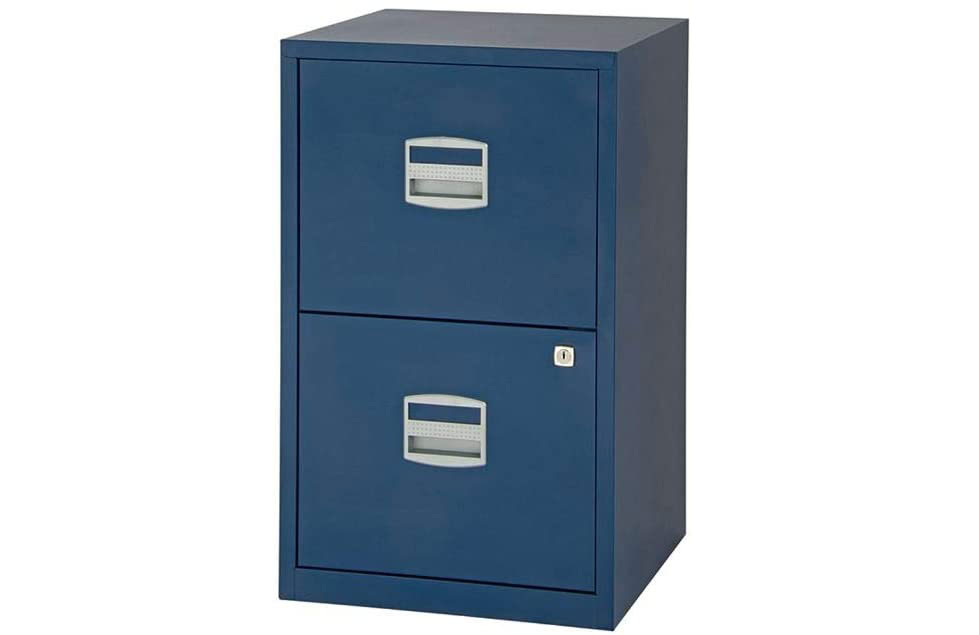
Some of the simplest storage solutions are office drawers. Perfect for shutting away the clutter (in an organised fashion, of course), drawer units are versatile creatures. From filing cabinets for paperwork to units with deeper drawers, and combinations of drawers and shelves, there's a solution for everyone in our list of the best office storage drawers.
05. Arm your monitor
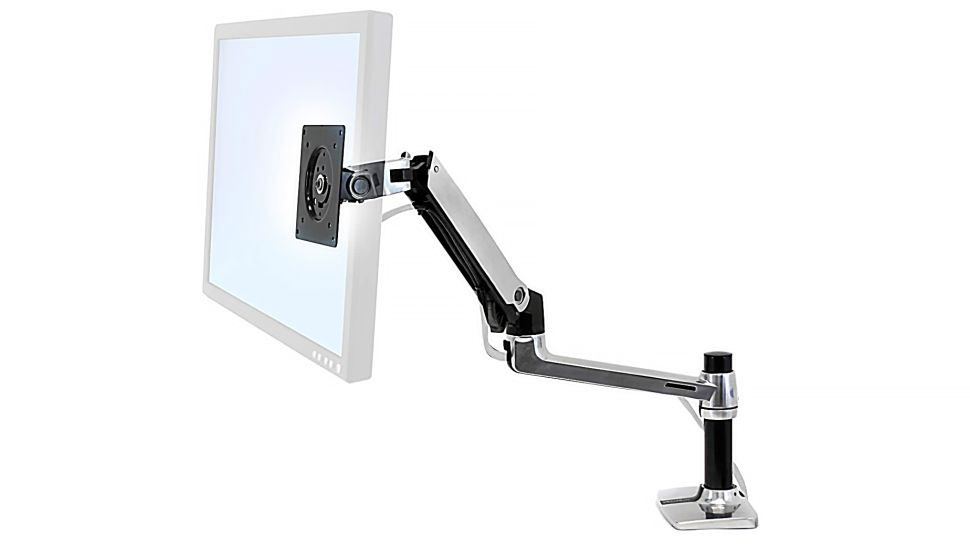
The angle of your monitor can make a massive difference to your posture and back health. Monitor arms like this Ergotron LX Desk Mount LCD Arm allow you to perfectly position your monitor so it's angles just right for your height, how far back you're sitting, glare from the light and so on. Our guide to the best monitor arms has some top options for all budgets and needs, as well as some handy tips for what to look out for when positioning your monitor.
06. Position your laptop perfectly
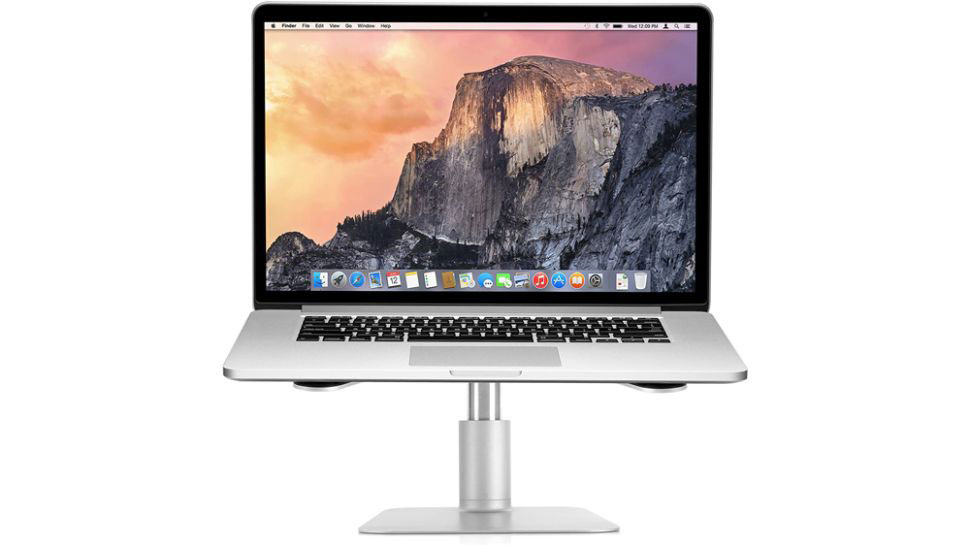
Do you know how your laptop should be positioned to allow for tip top body health? How your laptop is angled will do wonders for your wrist health, improve your posture and even make it more portable (work lying down on the sofa, anyone?). This Twelve South HiRise for MacBook is our favourite overall, but there are a bunch more options over in our list of the best laptop stands around at the moment.
07. Memory foam wrist rest
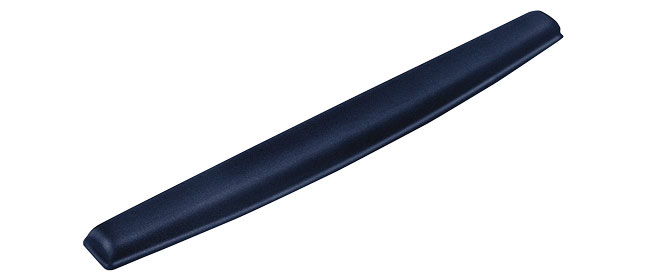
As a designer, you'll be too busy typing all those Photoshop shortcuts to notice that you may be hurting your wrists in the process. Turns out memory foam does wonders for the joints and this memory foam wrist rest will be perfect for keeping you clicking away happily for years to come.
08. Desk lamp
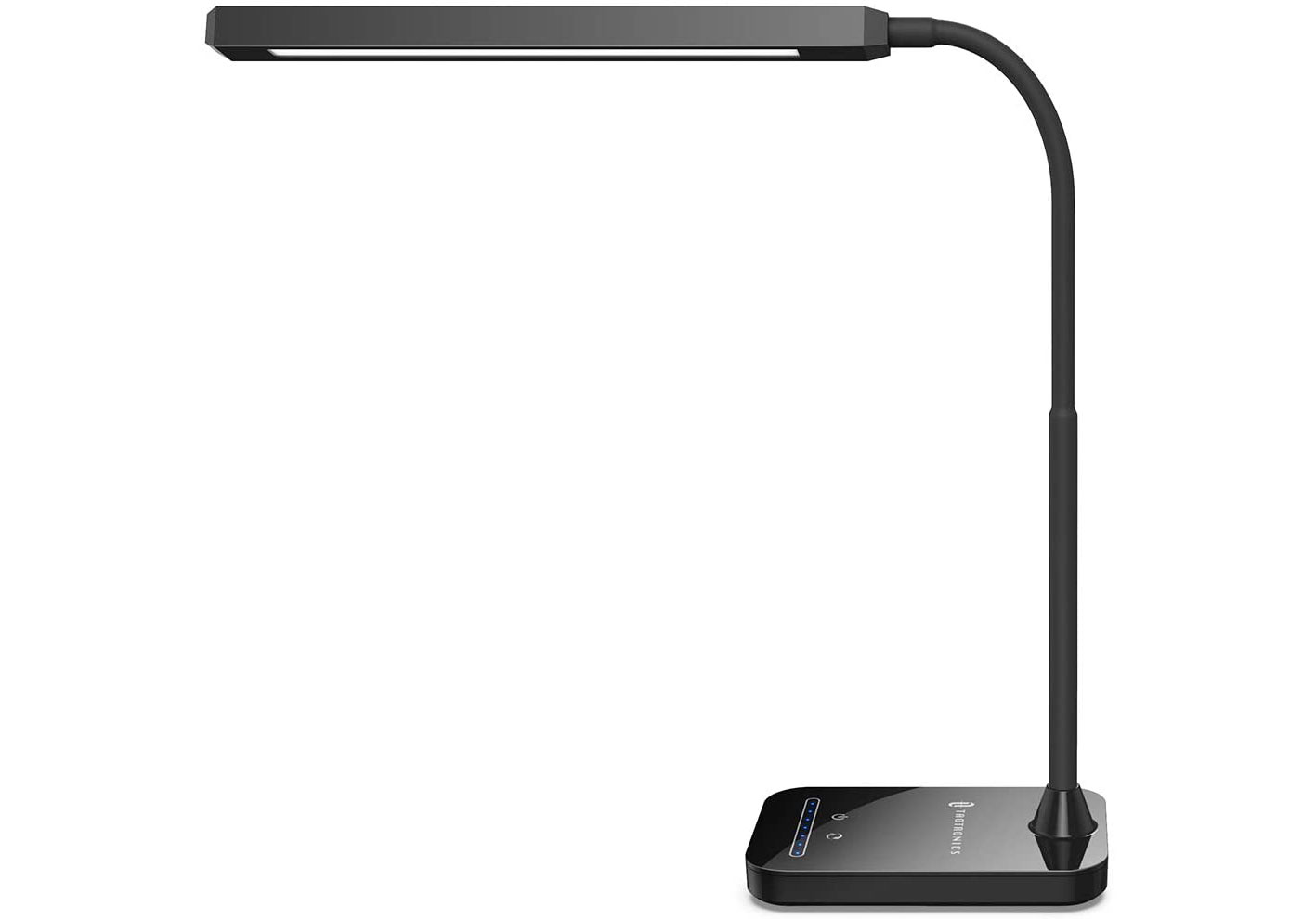
As a designer, you ain't nothing without your eyes. All those late nights in the studio need to be lit correctly to look after those peepers, so a light with a function to adjust brightness is a must. There are lots of options out there (just see our best desk lamp guide) but we're particularly keen on the TaoTronics LED Desk Lamps due to the slick and stylish designs and wealth of features. With multiple lighting modes, your eyes will be thanking you.
09. Heated blanket
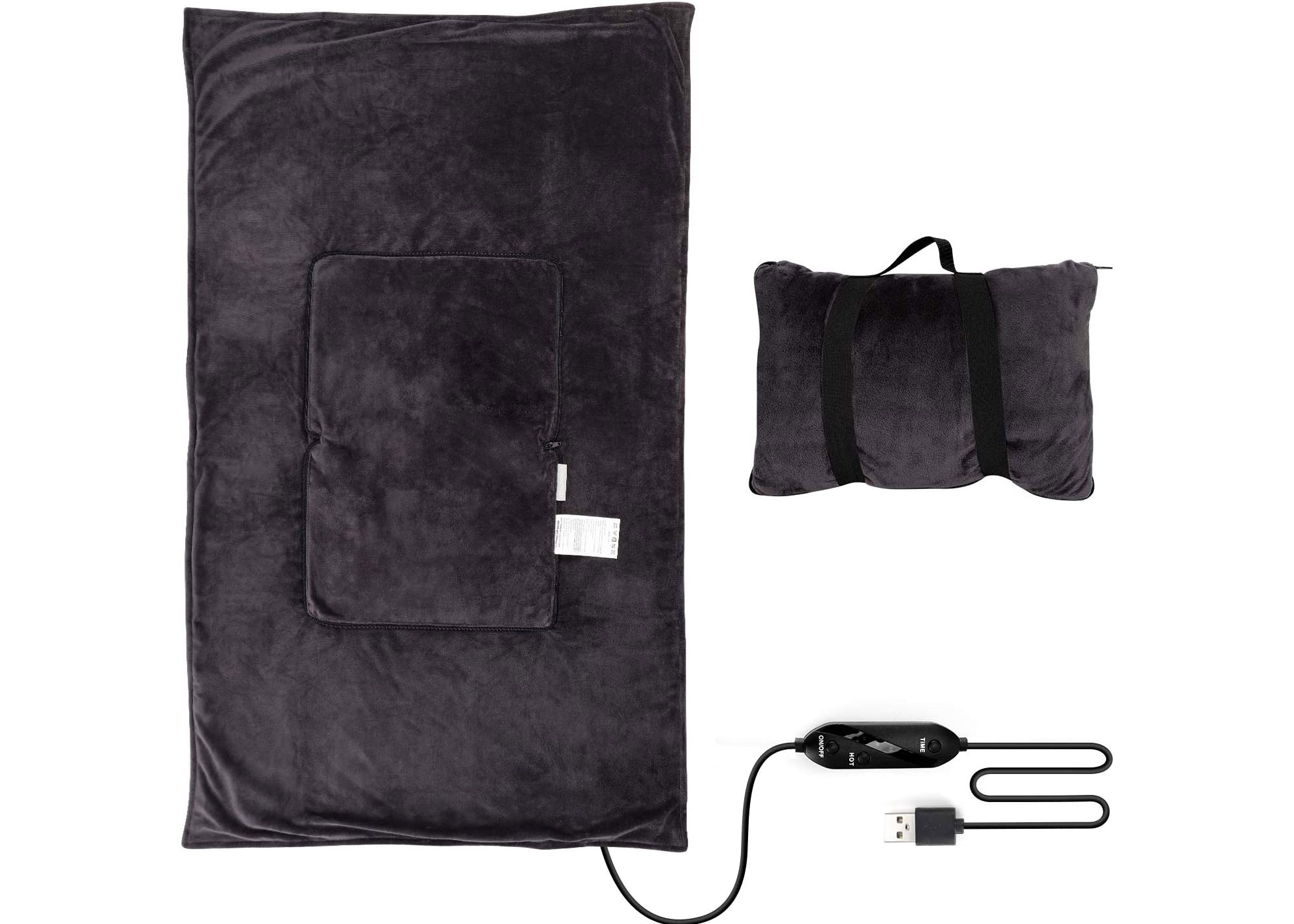
Now we're past the fundamentals of keeping you healthy and happy at your desk, it's time to get cosy. Whether you work in an office with temperamental uh, temperature control or you're trying to keep the bills down at home, a good blanket can make those long hours a little easier.
If you want to get really technical, why not opt for an USB-controlled blanket? They have multiple heating levels so you can tweak your comfort depending on how toasty (sleepy) you want to get.
10. Heated mouse cover
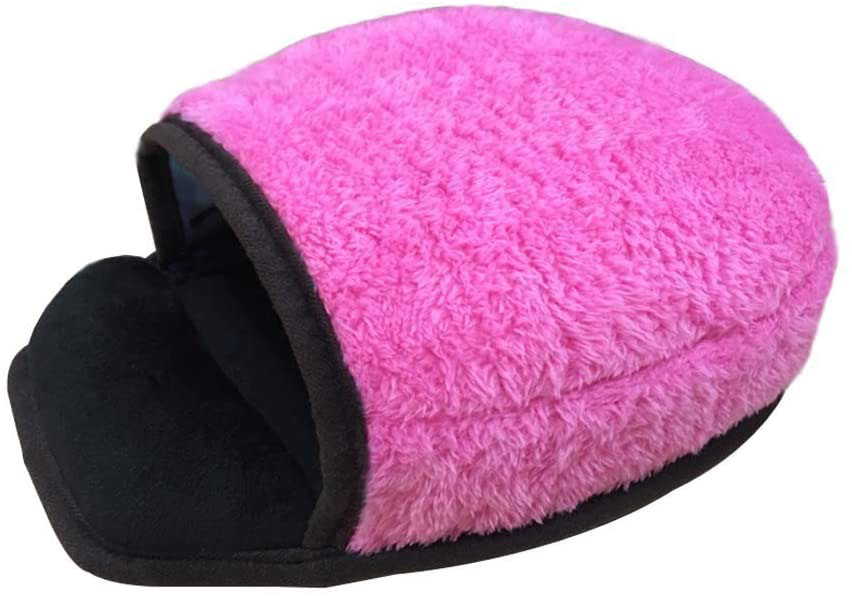
You won't be able to tuck your hands under your cosy blanket while you're busy working, so it's probably also worth investing in a heated mouse pad. This one comes complete with a wrist rest – the perfect solution if your circulation isn't great and you've had your fill of fingerless gloves. And there are six different colours to choose from.
11. Desk organiser
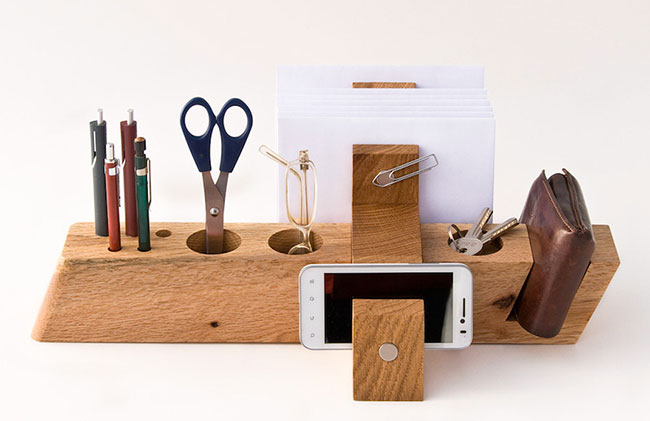
We're all partial to chucking a few things on our desk and well, never really tidying it up. Mess can mean a lack of concentration or inspiration but it can also make your working day a lot less comfortable. No one wants to bash into a bunch of pens or last week's lunch receipt when creativity strikes. A desk organiser is your best bet and this one from Less & More is as pretty as it is practical. The handmade organiser consists of two bodies of heavyweight hardwood that assemble together like a snug-fitting puzzle.
12. Air purifier
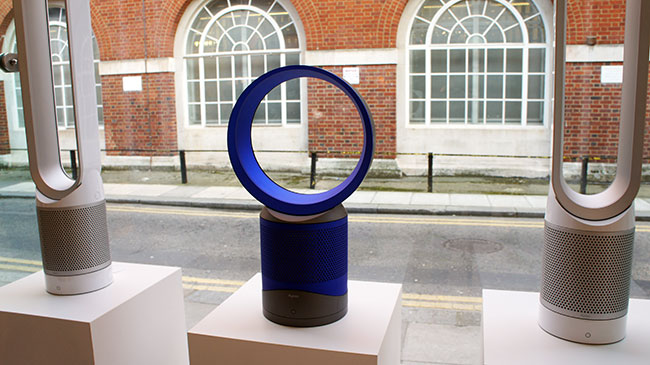
If you suffer from allergies, a build up of dust, pollen, and hair from the office dog could really be affecting your productivity and comfort on a day-to-day basis. While it's not always practical to grab some fresh air every hour or so, you can purify the air around your workspace. The Pure Cool Link from Dyson is pretty much the messiah of clean air – but you'll need to shell out a fair bit for it.
13. Ergonomic footrest
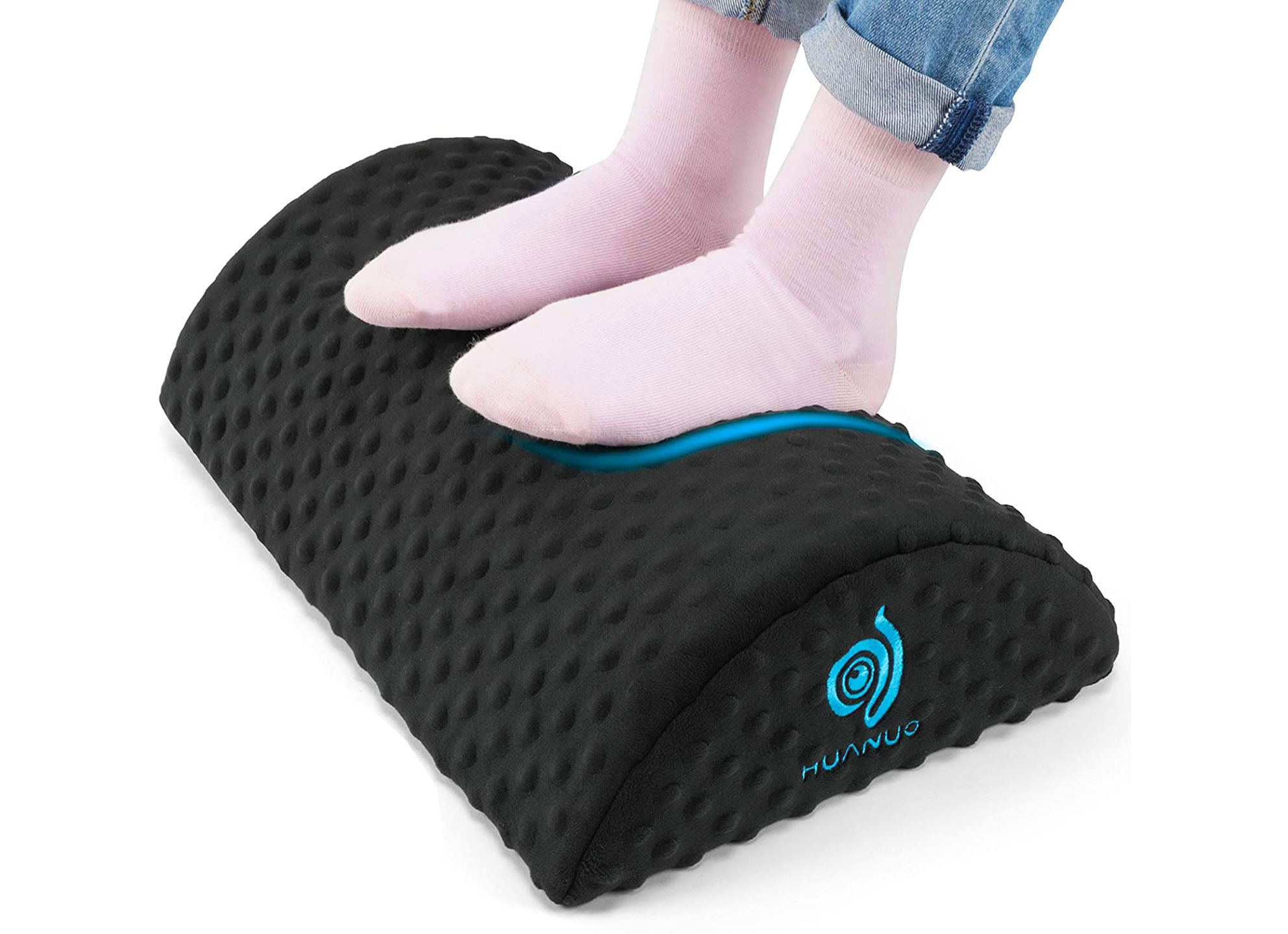
So we've already established that as a designer, you tend to sit down for long periods of time. We've taken care of your back, your eyes and your air but we haven't yet focused on your feet. The HUANUO Under Desk Foot Rest comes with a textured surface and massaging beads, to help improve your circulation when sitting down too long.
14. Desk fridge
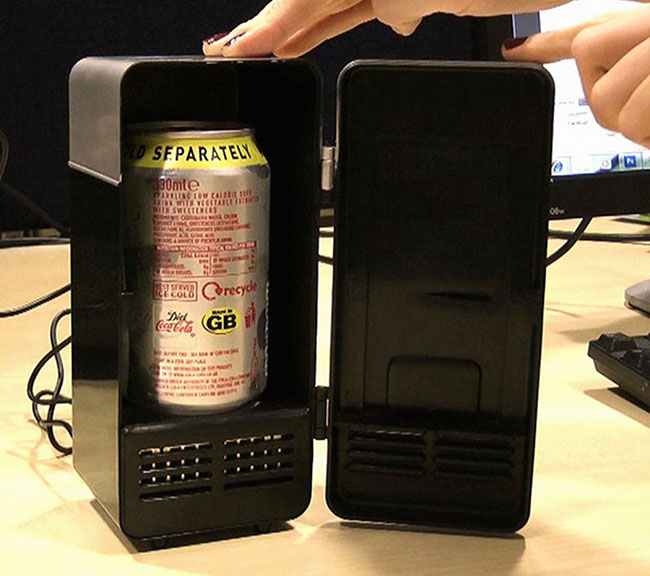
Even designers deserve a little down-time and why not start that at your desk? The ultimate comfort is a cold brewski and with a desk-sized fridge, you won't have to walk anywhere to grab your much-deserved drink after a long day dealing with clients.
Related articles:
- Super-cool design offices to stir the senses
- 9 office organisation ideas to transform your studio
- Incredibly cool office murals

Sammy Maine was a founding member of the Creative Bloq team way back in the early 2010s, working as a Commissioning Editor. Her interests cover graphic design in music and film, illustration and animation. Since departing, Sammy has written for The Guardian, VICE, The Independent & Metro, and currently co-edits the quarterly music journal Gold Flake Paint.
